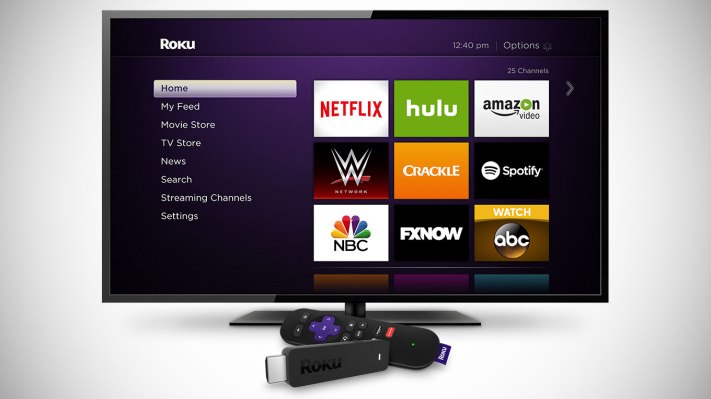Streaming media player maker Roku has lost a legal battle in Mexico which has resulted in a ban on sales of its devices in the country. Cablevision, the cable TV operator owned by Mexican media giant Televisa, had taken Roku to court alleging that Roku’s gadgets are being hacked to allow users to watch pirated channels.
Last week, a judge issued a court order to stop the importation of sales of Roku devices, but Roku had won a suspension.
This week, the court overturned that decision, leading to Mexican retailers – including major department store chains – to pull the devices from their shelves, Bloomberg reports.
Reading between the lines of Cablevision’s statement, the issue has to do with how Roku’s software works, which is not as locked down as Apple TV, for instance.
“Cablevision cannot allow the content that it licenses from domestic and foreign companies to be illegally used,” a spokeswoman told Reuters. “We would also like Roku Inc to better supervise the use of its software so that it’s not used inappropriately.”
According to Roku, the situation is not as simple as Cablevision alleges. While piracy is a rampant problem in Mexico, Roku says it’s not enabling the channels distributing pirated content on its platforms, and, in fact, is taking them down when found.
“The businesses that are accused of using the Roku platform to distribute pirated content in Mexico developed Roku channels, and then sold subscriptions to these channels directly to end users,” explains a Roku spokesperson.
In Mexico, hackers often solicit customers over WhatsApp promising them access to hundreds of TV channels and movies on the Roku, including not only Televisa’s content, but other premium networks like HBO or sports from ESPN.
They sell this content through non-certified channels that are added to Roku through a system the company had set up with the intention of allowing developers to test channels without publicizing them to the entire Roku audience. This system has today become a popular way to watch content you don’t have legal access to, however.
The situation is also not entirely different from how many Amazon Fire TV Stick owners today “jailbreak” their devices to install software like Kodi which facilitates access to pirated streams of movies and TV. (Kodi itself is legal software, but can be misused to enable connections to illegal video sources.)
Roku also notes that these “non-certified” channels are not available in its Roku Channel Store. “We have ongoing measures in place to find and take down these types of channels,” the company tells us.
“Roku’s policies prohibit streaming content on our platform without distribution rights from the copyright holder. We encourage our customers to be careful when adding channels to their Roku accounts, and we do not recommend, promote or encourage use of any channels not found in the Roku Channel Store,” the spokesperson added.
While the ban to block Roku sales in Mexico is now live, Roku devices can still be found through many retailers, including, as of yesterday, online on sites like Amazon, Best Buy and Walmart.
In a statement, Roku says it will fight the decision, which it argues is not final:
Roku disagrees with yesterday’s decision by the Twelfth Collegiate Tribunal in Civil Matters of Mexico City, and intends to continue to pursue its legal and constitutional rights to distribute its products in Mexico. Yesterday’s decision is not the final word in this complex legal matter.
